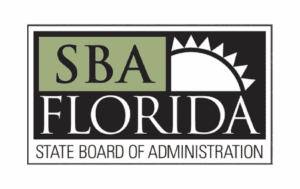A Fresh Approach to Small Business Health Insurance in Georgia

In the quest for affordable health solutions in Georgia, HRAs or Health Reimbursement Arrangements are emerging as a game-changer for business owners. As health insurance costs continue to climb, it’s no surprise that many small business leaders in GA are on the lookout for cost-effective ways to offer their workforce top-notch health benefits. HRAs might just be the gem they’ve been hoping to discover.
The best bet for Small Business Health Insurance in Georgia
One of the standout features of HRAs is their ability to let employers compensate employees for eligible medical expenses, including those elusive health insurance premiums, all while enjoying a tax-free perk. It’s a win-win situation where both parties save money. Moreover, HRAs boast versatility. They can be customized to align with each business’s unique requirements. Business leaders can decide the reimbursement sum and make modifications as and when necessary.
HRAs can beautifully complement individual health insurance plans. Often, these individual plans come with a friendlier price tag than their group health insurance counterparts. This means employees can select a plan that suits their individual health needs and budget, and still enjoy a financial boost from their employer.
Given the recent shake-up in Georgia’s health insurance landscape, especially with the state stepping up to steer the market under fresh legislation, HRAs are shining brighter on the radar.
They’re shaping up to be a go-to choice for GA’s business owners eager to offer quality health coverage without breaking the bank.
Georgia’s Exciting Leap: A Brand New Health Insurance Marketplace!
Big news on the health front: Governor Brian Kemp gave the green light for the Peach State to craft its very own health insurance marketplace. This move promises to simplify your journey in comparing and selecting health insurance options.
Here’s the scoop:
Thanks to Senate Bill 65, Georgia is ditching the old law and paving the way for a state-run health care exchange. This is a massive shift from the earlier stance against the Affordable Care Act.
While federal Healthcare.gov served nearly 900,000 Georgians before, the new state-based marketplace will launch along with 2024 open enrollment.
Kemp’s original idea was slightly different. He imagined a space where private brokers offered a mix of policies. However, after some discussions and valuable feedback, the decision is to focus on a central state marketplace with only federally approved plans. All for the best!
Having spent $31 million on preparations, the Kemp administration is all set and eager to make this a success.
Laura Colbert of Georgians for a Healthy Future points out some cool perks we might enjoy, like extended enrollment periods and an all-in-one application for state health programs.
Why Georgia’s New Marketplace and HRAs Are a Winning Combo for Businesses
With Georgia forging its own health insurance marketplace, let’s dive into how this landscape can offer businesses like yours a splendid opportunity. Let’s chat about HRAs and why they’re making waves!
HRAs: The New Buzz in Town for Businesses
Think of HRAs as those versatile tools that help the marketplace thrive. By introducing HRAs, businesses can sprinkle a little extra sunshine on their employees. HRAs let you reimburse your team for certain medical expenses. It’s all tax-free, and it beautifully complements various health plans, especially those HDHPs.
What does this mean for Georgia employees? More choice, more flexibility! They can use HRA funds for out-of-pocket expenses, from deductibles to prescriptions, as well as individual health insurance premiums.
ICHRA vs. QSEHRA: The Dynamic Duo of Health Reimbursement Arrangements
Health Reimbursement Arrangements (HRAs) have transformed the way employers can provide health benefits to their employees. Within the realm of HRAs, two standout models have emerged: Individual Coverage Health Reimbursement Arrangement (ICHRA) and Qualified Small Employer Health Reimbursement Arrangement (QSEHRA). While they both offer businesses unique advantages, they cater to different needs and structures. Let’s dive into their key features and differences.
What to know: Individual Coverage Health Reimbursement Arrangement
ICHRA offers a modern twist to employee health benefits, providing businesses with a flexible and customizable way to reimburse employees for their individual health insurance costs.
Flexibility with Employees: One of ICHRA’s shining features is the ability to offer different reimbursement amounts based on classes of employees. This means you can provide different reimbursement rates to full-time vs. part-time workers, or based on geographic location, among other criteria.
No Maximum Contribution Limits: Unlike QSEHRA, ICHRA does not have set annual contribution limits. This provides employers with the liberty to decide how much they want to reimburse employees.
Employee Eligibility: Employees are required to have individual health insurance, either through the marketplace or another source, to participate in an ICHRA.
Integration with Premium Tax Credits: Employees can’t double-dip by receiving both ICHRA benefits and premium tax credits. If the ICHRA allowance is deemed “affordable,” then the employee cannot claim the tax credits.
What to know: Qualified Small Employer Health Reimbursement Arrangement
QSEHRA presents a tailored health benefit solution for smaller businesses, enabling them to compensate employees for qualified medical expenses without the complexities of a traditional group plan.
Designed for Small Employers: QSEHRA is tailor-made for small businesses. Only companies with fewer than 50 employees who don’t offer a group health insurance plan can use QSEHRA.
Annual Contribution Caps: There are caps each year set forth by the IRS that limit
Equal Reimbursements: Unlike ICHRA, QSEHRA requires employers to offer the same reimbursement to all eligible employees. However, adjustments can be made based on age and family size.
Simpler Eligibility: Employees simply need proof of minimum essential coverage to be eligible for reimbursements and can be reimbursed for premiums from their spouse’s employer’s plan.
Choosing between ICHRA vs QSEHRA depends on your business size, your budget, and your objectives for employee health benefits. Both HRAs offer tax advantages and can be more cost-effective and flexible than traditional group plans. Whether you’re leaning towards the customization options of ICHRA or the small-business-friendly structure of QSEHRA, both options signal a forward-thinking approach to employee health benefits.
Group Health Insurance vs HRAs: Why Georgia Businesses are Eyeing a Change
Peach State entrepreneurs and workers, if you’ve ever felt like group health insurance was a one-size-fits-all that just didn’t work for you, this section’s for you. Let’s dive into why so many are shifting gears to HRAs and championing individual choice.
Group Health Insurance
Group health insurance is the traditional way of providing employee benefits. Employers pick a plan, pay a portion of the premium, and all employees are grouped into this plan, even if it’s not quite the best fit.
The Hitches with Group Plans
👎🏻Less Choice: One plan for all might not address individual health needs.
👎🏻Costly for Employers: Scaling up? As the team grows, so can the price tag of group insurance. This could leave employers feeling the squeeze.
👎🏻Fixed Benefits: Renewals leave businesses feeling like they have no control over the costs. Many say they are unsustainable and detrimental to their business model.
HRAs: The Fresh Approach Health Benefits
Here’s where HRAs shine. Employers can still provide health benefits for employees but with HRAs, employees get to choose the plan they want, not the other way around.
Why HRAs Are The Talk of The Town
👍🏻Tailored Fit: They pick a health plan that fits just right, from broad coverage to specialized care.
👍🏻Empowerment: Put the decision in their hands! Employees cherish the autonomy to choose and not just get served.
👍🏻Budget-Friendly for Employers: Set your limit and stick to it. HRAs offer predictable costs while delivering invaluable benefits.
Individuals Rejoice: Custom Plans and Freedom!
With HRAs, employees get to select plans that cater to their unique health needs. It’s all in their hands. They select, get covered, and then, thanks to HRAs, get reimbursed for qualified medical expenses.
So, Georgia businesses and workforce, there’s a health benefits revolution afoot. Moving from the traditional to the transformative, HRAs offer a blend of choice, control, and cost-efficiency.
ICHRA vs QSEHRA Comparison
Feature/Aspect
ICHRA
QSEHRA
Eligibility
All businesses
Businesses with fewer than 50 employees
Employee Health Plan
Must have individual health coverage
Must have minimum essential coverage
Maximum Contribution Limit
No maximum
Annual limits apply
Benefit Customization
Offers flexibility with classes of employees
One consistent amount for all employees
Tax Benefits
Tax-free for both employer and employee
Tax-free for both employer and employee
Affordability Requirement
Must be “affordable” under ACA guidelines
No specific affordability requirement
Premium Tax Credit (PTC)
Employees can’t claim PTC if they accept ICHRA
Employees can’t claim PTC if QSEHRA is deemed affordable and they accept it
Notification Requirements
Must notify employees 90 days before the start of the plan year
Must notify employees 90 days before the start of the plan year. Notification also required at time of hiring for QSEHRA
Navigating HRA Administration with Take Command at the Helm!
HRAs are flexible and ready for all your health benefit needs. But, managing the ins and outs of HRA, from compliance to tax-free reimbursements, can sometimes feel like assembling a puzzle.
That’s where the superstars of third-party administrators, like Take Command, step into the spotlight and make the magic happen.
Meet Take Command
Enter Take Command: your go-to guru for everything HRA. Whether you’re setting up your HRA or diving deep into tracking reimbursements, the folks at Take Command have your back. And we’re not just about the nuts and bolts! We also have a treasure trove of resources to make HRAs as easy as pie for employers and employees alike.
Making HRA Administration Easy with Take Command
With Take Command, the HRA world gets a whole lot sunnier. Set up your HRA quickly, have employees send their reimbursement needs seamlessly, and, for those head-scratching moments, lean on our tools and resources. Whether it’s compliance support or just wanting your plan to have a little extra flair, we’ve got you.
Premier Software for HRAs
Take Command’s HRA administration software makes managing employee health benefits easy.
Quick-as-a-flash online plan setup & management
Keep tabs on all those employee reimbursements
Ace the compliance game with their support & reporting
Customize your plan so it’s just the way you like it
Learn the HRA ropes with handy resources
Getting Your HRA Up and Running
Georgia business owners, ever thought about giving your team the magic of an HRA? It’s like a little health benefit wallet that tops up your employees for things like prescriptions, check-ups, and more. Plus, it’s a win-win: your team gets awesome perks and you might just cut down on those hefty health insurance bills.
How to set up your HRA
Choose Your HRA: There are several Health Reimbursement Arrangement (HRA) options available, such as QSEHRA and ICHRA. Carefully consider which one suits your team and budget.
Customize Your Allocation: Determine who receives what and in what amounts, while keeping in mind the maximum contribution limits for each HRA type.
Select a Start Date: Decide when you want to begin the HRA program. If you don’t currently offer group health plans, you can start at any time, but starting at the beginning of a month can be smoother.
Review and Adjust Your Policy: Review your existing insurance setup to ensure compliance with HRA rules and make necessary changes.
Create and Share HRA Details: Develop a clear document outlining the HRA specifics and share it with your team to ensure everyone understands the new benefits.
Promote HRA Engagement: Encourage your team to get involved in the HRA program, guide reimbursement procedures, and be available for questions and support.
{Learn more about HRA administration}
Making the Right Health Benefits Choices for Your Business
Navigating the landscape of health insurance options for small businesses can be a daunting task. From understanding the fundamental differences between ICHRA and QSEHRA to exploring the potential advantages of HRAs, the journey to selecting the best fit requires careful consideration. As Georgia’s small business landscape continues to evolve, so too do the health insurance needs of its entrepreneurs and their teams. Whether prioritizing flexibility, cost-effectiveness, or employee well-being, the ultimate choice should resonate with the company’s values and growth goals. Remember, a well-informed decision today can pave the way for a healthier, happier, and more productive tomorrow for everyone involved.
{Talk to our expert team today!}
Your Top Questions Answered: Why HRAs Shine in GA for Small Business Health Options
What’s the best health insurance deal for small businesses in Georgia?
While Georgia’s small business owners have some choices, from high-deductible plans with HSAs to group insurance, the real MVP is the Health Reimbursement Arrangement (HRA). Why? HRAs are tailored for flexibility, cost-effectiveness, and giving employees personalized health solutions.
Alright, so why are HRAs the crown jewel for GA’s small business health perks?
HRAs are like the secret sauce for small businesses in Georgia. They let you pitch in tax-free bucks to cover your team’s health costs like deductibles and copays. This means fewer money worries for your crew and a big, shiny magnet to pull in the best talent out there.
But there’s got to be a catch, right? Any downsides to HRAs in GA?
Every option has its nuances. With HRAs, your team needs a high-deductible health plan. Some folks might miss the familiarity of traditional group plans. But, with the perks and flexibility of HRAs, many businesses find they’re more than worth it!
What’s the price tag on group health insurance for GA’s small businesses?
It’s a bit of a mix. Depending on your business’s specifics and the health and age of your team, you could be looking at anywhere from $200 to $500 monthly for each employee.
Need a trusty health insurance broker in Georgia? How do you find one?
Network, network, network! Chat with fellow GA business owners and get their recommendations. Make sure your broker’s clued in on Georgia’s unique small business vibe.
Picking a health plan for your GA small business? What should be on your checklist?
Dive into the details: premium costs, deductibles, copays, and which doctors are in-network. And, always, always consider what your team wants – after all, a happy crew is a productive crew!
In a nutshell? If you’re after a health benefits option that’s flexible, employee-centric, and cost-friendly, HRAs are your go-to in Georgia! 🌟🍑🌟



